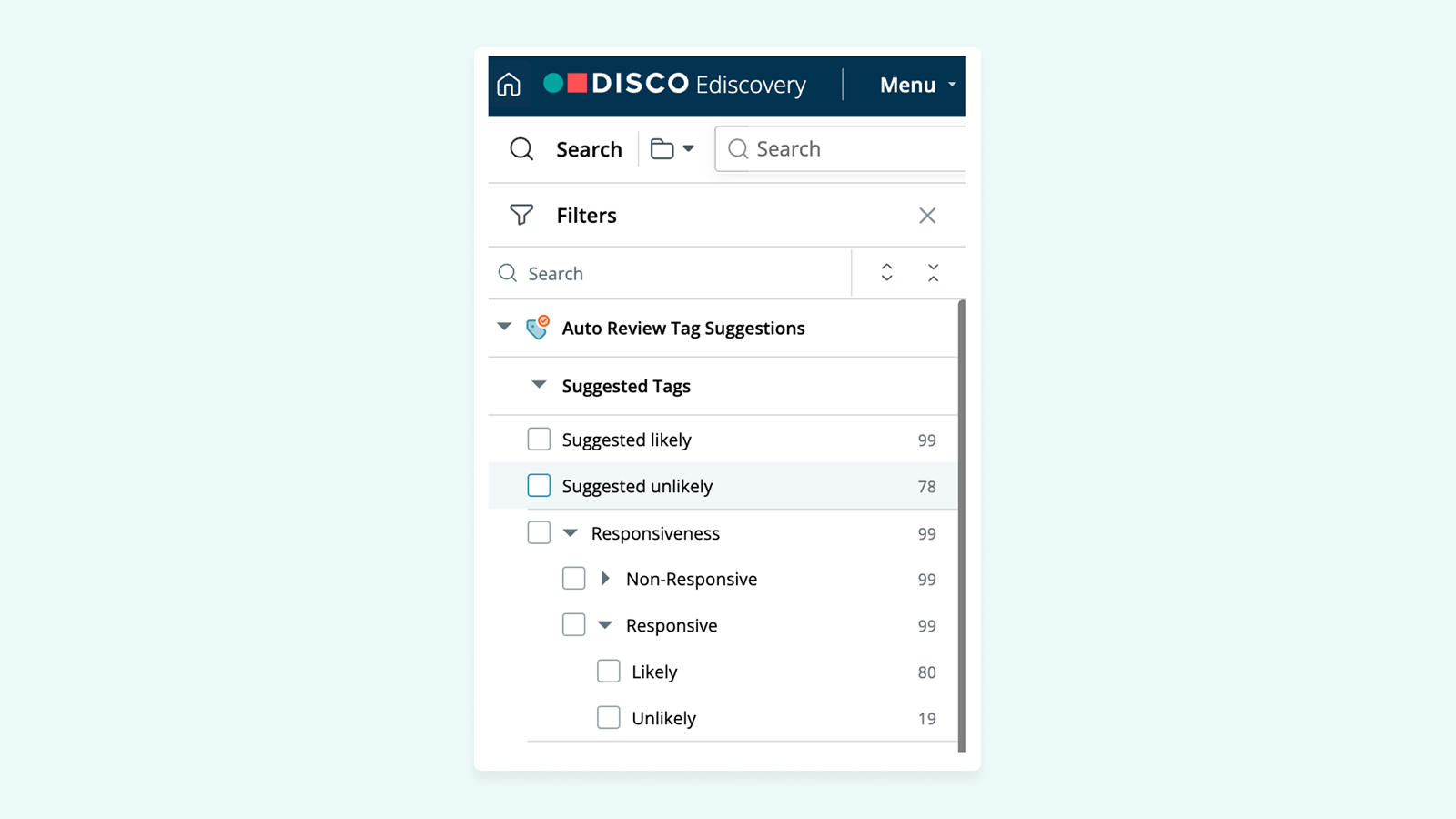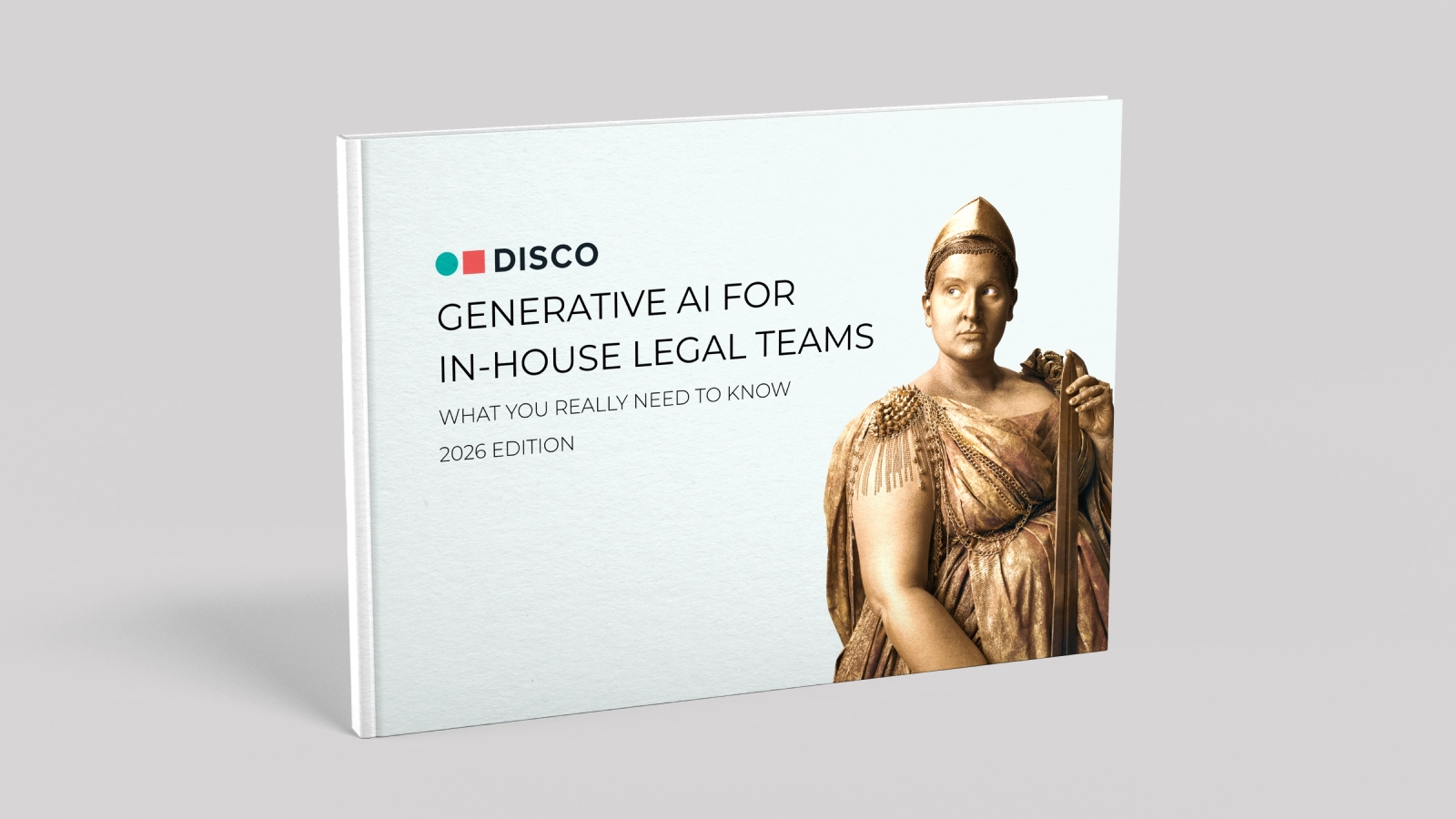⚡️ 1-Minute DISCO Download
The Road Ahead for AI
Earlier this year, a tech start-up endeavored to become the world’s first robot lawyer, coaching a defendant in a speeding ticket case with AI prompts via earpiece in real time so he could argue on his own behalf. While the scheme was quashed before the case came to trial, it underscores just how far artificial intelligence has come and its potential within the legal sector.
Indeed, after years of promise, 2023 has been a watershed year for AI technology. In recent months, we’ve seen the first-ever film known to be written and directed by AI, have witnessed eerily human-sounding conversations between man and machine, and, for those living in San Francisco, may have even caught our first ride in a driverless taxi cab. Across sectors, the transformative power of AI has accelerated from the stuff of sci-fi to reality—and the legal profession is no exception.
📚 Related reading: Alternate Legal History: If Enron Had DISCO
Keep reading to learn how cutting-edge law practices are already utilizing AI to improve ediscovery and other everyday processes and how AI will transform the industry as it continues to advance.
AI’s Role in Law Firms
Given the extent to which the law is rooted in precedent, it should come as no surprise that the legal sector has historically been on the conservative side when it comes to adopting new technology. When the COVID-19 pandemic forced practices home in 2020, cloud adoption among lawyers rested at just 59%, according to the American Bar Association—meaning that more than 40% of documents, workflows, and other daily necessities were locked away in filing cabinets, on desktop computers and elsewhere within physical workplaces.
What a difference three years make.
As public awareness of the new capabilities of AI has surged, so too has lawyers’ curiosity and openness around the potential for AI and ediscovery and other use cases that can improve upon firms’ efficiency and effectiveness.
According to a recent Thomson-Reuters report on generative AI within law firms:
- More than 90% of lawyers in mid-sized and large law firms are aware of generative AI and ChatGPT
- 82% of lawyers believe generative AI can be applied to legal work
- 40% of large firms and 31% of mid-sized firms are considering adopting AI technology
Given the forces currently at play within both the legal sector and the broader economy—climbing expenses; competition for talent and clients; heightened attention on cost containment and efficiency, particularly among clients—this openness could not come at a better time.
While the segment of firms that has actually deployed AI might still be a minority, those cutting-edge law practices are beginning to realize the potential of artificial intelligence to propel everyday functions.
Here are some of the ways early adopters are using AI to supercharge their work:
- Faster, more complete ediscovery Working in law can feel like scaling Everest—that is, if the world-famous peak was made of paperwork. And with texts, emails, social media and other content frequently in the mix, the amount of content lawyers must prepare and analyze in the course of work is only getting bigger. In the last few years, AI has become a key partner when it comes to ediscovery, helping firms wade through mountains of materials to find relevant data, redact documents as needed, and make sense of all that information. Taking it a step further, the integration of chatbots such as DISCO Cecilia, capable of conversing with users in plain English, allows users to quickly gain a high level of understanding about what’s in these vast amounts of documents (as well as direct links to the source materials), simply by asking questions.
- Automating compliance From responsibly storing—and appropriately disposing of—sensitive materials to functions such as trust accounting, law firms are beholden to a host of regulatory obligations. Adhering to these responsibilities (not to mention, keeping up with the latest regulations) can be complex and time-consuming work—with actual and reputational costs should efforts fall short. With the ability to automatically log and classify files and actions taken, AI is helping smart firms to reduce the manual work of compliance—as well as the risks.
- Smarter contract drafting Contract drafting and negotiation is an infamous drag, costing companies between five and 40% of the average deal value, according to Harvard Business Review. But AI is vastly improving the work of contract drafting and management, scanning and learning from existing contracts to automatically recommend or arrange language and clauses, reduce errors and inconsistencies, close gaps, and proactively identify risks.
- Conflict of interest checks Doing your best work for a client requires complete dedication to their cause—hence the duty that firms avoid potential conflicts of interest. The American Bar Association has conflict of interest rules addressing not only direct conflicts, but risks from former clients and indirect affiliations. Some firms have implemented AI software to conduct the painstaking work of cross-checking client databases, and of documenting COI checks, to confirm no conflicts exist.
AI at Work: Powering Through 300K Documents
300,000-plus documents from three different global jurisdictions? The vast data review the multinational law firm Withers LLP had to quickly undertake on a recent file is simply business as usual for many busy firms.
This case study of how Withers leveraged DISCO’s AI capabilities to perform that gargantuan task demonstrates how innovative firms are leveraging technology to level-up their ability to power through vast and complicated datasets, maximizing insights and optimizing time and resources.
In a recent trial, the firm needed to review more than 300,000 documents coming from three different global jurisdictions. After obtaining all those materials within mere hours, thanks to DISCO’s high-speed uploader, Withers was able to sort, classify and prioritize the data with unprecedented efficiency: using previous tagging classifications made by the Withers team, DISCO’s AI was able to quickly review the documents. Responsive by nature, DISCO’s AI model learns as it goes, returning better results with every tagging decision the Withers team reviewed.
That speed helped them cut to the chase—fast. Thanks to DISCO AI, Withers’ lawyers were able to quickly home in on the 38% of total collected documents that were actually relevant to the trial. With tight turnaround, the ability to eliminate the irrelevant 62% of documents was a game-changer, allowing Withers’ team to focus where they needed to, and meet every milestone on time.
The Future of AI in the Legal Sector
Exciting as these use cases and real-life examples may be, we haven’t scratched the surface of the potential of applications for AI in law.
According to a recent analysis by Goldman Sachs, some 44% of current work tasks in the legal sector could be automated using AI, meaning opportunities abound to expand upon these benefits.
These capabilities come at a critical juncture for the legal sector. Data show that firms are being squeezed from all sides, with no signs of abetting. According to Thomson-Reuters Institutes’ 2023 Report on the State of the Legal Market, the third quarter of 2022 was the least productive period on record for firms. This comes a time when overhead and direct expenses clocked in at their highest level since 2008.
Meanwhile, the report notes that although competition for clients is fierce, clients are “willing to pay more for firms if they produce high quality work in efficient and cost effective ways. (They) want the most ‘bang for their buck,’ not just the lowest sticker price.”
The expansion of AI presents exciting opportunities for firms to stand out in this respect in part because the reduction or removal of manual ediscovery work frees up lawyers to dedicate more time to creative thinking and strategizing.
But as technology advances, AI has the potential to become a partner in generating firms’ best work. The opportunities are vast, encompassing everything from tailored, interactive training for students and associates to smarter client intake. With the ability to analyze hundreds of hours of court transcripts and recordings, AI could even help to identify judges’ preferences and proclivities, helping lawyers structure arguments and avoid potential pitfalls for maximum resonance.
It is indeed an exciting time for AI with tremendous potential to accelerate the work of legal firms. There’s no better time than now to get started. To learn how DISCO can help improve your law firm’s current workflows and prepare for the exciting future of AI, contact us for a demo.


.webp)



%20(1).jpeg)








